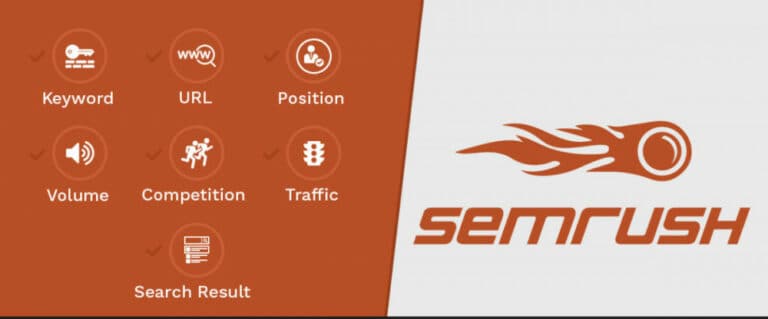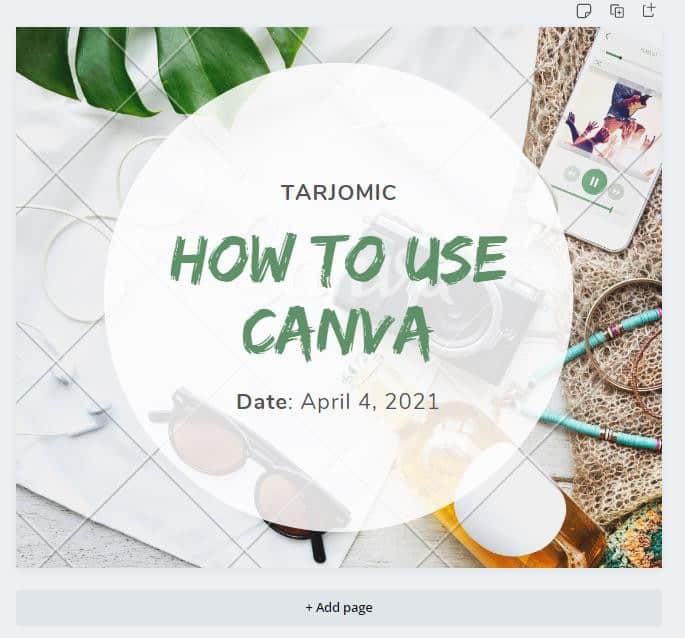How To Do Local Keyword Research
If you run a small business or offer services in a specific city or region, knowing how to do local keyword research can make a big difference in how easily customers find you online.
Local SEO helps you reach people who are already nearby and looking for exactly what you offer. By learning how to do local keyword research, you’ll discover the words and phrases people use when searching for businesses like yours — from “best coffee shop near me” to “freelance designer in Toronto.”
In this guide, we’ll walk you through a simple, step-by-step process to find the right local keywords, use them effectively on your website, and improve your visibility in local search results.
What Is Local Keyword Research?
Local keyword research identifies and analyzes keywords relevant to a particular geographic location. It involves understanding local users' search terms and phrases when looking for products, services, or information within a specific area.
Local keyword research considers location-based modifiers, such as city names, neighbourhood names, ZIP or postal codes, or other geographical indicators, to tailor the keywords to the local audience.
For example, instead of targeting a general keyword like “restaurant,” local keyword research would focus on terms like “Italian restaurant in [city name]” or “best pizza near [neighbourhood name].”
To conduct local keyword research, you can use various tools and techniques. This may include using keyword research tools that allow you to filter and search for keywords based on location modifiers.
Additionally, you can leverage local search features like Google Maps, regional directories, and social media platforms to gather insights into the keywords that local users commonly use. Local keyword research aims to find the most pertinent and popular keywords that are unique to your target location.
You may improve your visibility in local search results and bring more relevant local traffic to your company by adding these keywords to the content of your website, meta tags, local listings, and other optimization activities.
How To Do Local Keyword Research?
Local keyword research is crucial to optimizing your online presence for local search. By identifying the keywords and phrases your target audience uses when searching for local products or services, you can better tailor your content and SEO strategy to attract local traffic and improve your visibility in local search results.
To conduct local keyword research effectively, follow these steps:
1. Identify Your Target Location
Identifying your target location is a crucial first step in local keyword research. By determining the specific geographic area you want to focus on, you can tailor your keyword strategy to capture local search traffic and attract relevant customers.
Start by considering the scope of your business and the areas where you want to establish a strong presence. This could be a city, region, neighbourhood, or even a specific radius around your physical location.
Understanding your target location will help you create location-specific content and optimize your website for local search.
It will also allow you to understand better the search behaviour and preferences of your local audience, ensuring that your keyword research aligns with their needs and interests.
Additionally, identifying your target location will help you uncover location-specific keywords and phrases relevant to your business, improving your chances of ranking higher in local search results and connecting with potential customers.

2. Brainstorm Seed Keywords
Brainstorming seed keywords is an essential step in local keyword research. Start by creating a list of general keywords relevant to your business or industry.
For example, if you own a coffee shop in New York City, your seed keywords could include “coffee shop,” and “coffee beans.”
Next, combine these general keywords with location-specific modifiers to make them more targeted to your desired geographic area.
Incorporate the name of your city, neighbourhood, or region into the seed keywords. Using the previous example, you could add “New York City,” “Manhattan,” or even specific neighbourhoods like “Chelsea” or “Williamsburg” to your seed keywords.
By brainstorming seed keywords that combine general terms with location-specific modifiers, you create a foundation for local keyword research.
These seed keywords will serve as a starting point to generate more location-focused and relevant keywords for your business.

3. Analyze Search Intent
Analyzing search intent is crucial in local keyword research. Understanding why people search for specific keywords helps you align your content and offerings with their needs. There are generally three types of search intent: informational, transactional, and navigational.
Informational Intent
These searches indicate that users seek information or answers to their queries. For example, someone searching for “best coffee shops in New York City” is likely looking for recommendations or reviews.
To target informational intent, consider keywords that include terms like “best,” “how to,” “tips,” or “guide.”
Transactional Intent
These searches suggest that users are ready to purchase or engage in a specific action. For instance, someone searching for a “coffee shop near me” or “buy coffee beans in Brooklyn” is likely looking for local options.
To target transactional intent, focus on keywords that include terms like “buy,” “shop,” “near me,” “in [location],” or specific product names.
Navigational Intent
These searches indicate that users seek a particular website or brand. For example, someone searching for “Starbucks New York City” specifically seeks information about Starbucks locations in the city.
Navigational intent is only relevant for local keyword research if you target specific brand-related terms.
By analyzing search intent, you can refine your keyword selection to match the needs and intentions of your target audience.
This helps you create content and optimize your website to provide the information or services users seek in your local area.

4. Assess Competitor Keywords
Assessing competitor keywords is an essential step in local keyword research. By studying the keywords your local competitors are targeting, you can gain valuable insights into their SEO strategies and identify potential keyword opportunities for your own business.
Start by identifying your top local competitors. These businesses in your area offer similar products or services and target the same audience.
Visit their websites and analyze their content, meta tags, and local listings to uncover the keywords they are using.
Pay attention to the titles and headings they use on their web pages and the meta descriptions and keywords they have included.
Look for patterns and recurring keywords that appear across multiple pages. Examine their local listings on search engines like Google My Business and directories such as Yelp.
Note keywords in their descriptions, categories, and customer reviews. It's crucial to copy your competitors' keywords and use them as a starting point for your keyword research.
Look for gaps or untapped opportunities where you can differentiate your business. You can also use tools like Ahrefs or SEMrush to gain more insights into your competitors' organic and paid keyword strategies.

5. Leverage Local Search Features
Leveraging local search features is crucial for effective local keyword research. These features, such as Google Maps, Google My Business, and local directories, provide valuable insights into the keywords commonly used by users searching for local businesses.
Start by exploring Google Maps and searching for your industry or business category in your target location. Take note of the search suggestions that appear as you type and the related searches at the bottom of the search results page.
These give you an idea of the specific location-based queries people use. Next, focus on optimizing your Google My Business listing. This includes incorporating location-specific keywords in your business name, description, and categories.
Pay attention to the questions and reviews left by customers, as they can provide valuable insights into the language and keywords used by your target audience.
Wealthy Affiliate – Mini Review (2025)
If you’ve ever thought about turning your blog, passion, or niche into an online business,
Wealthy Affiliate (WA) is one of the most beginner-friendly platforms I’ve used.
It combines step-by-step training, website hosting, SEO research tools,
and an active community all in one place.
What I like most: you can start free (no credit card needed),
explore lessons, test the tools, and connect with other entrepreneurs
before upgrading. WA isn’t a “get rich quick” scheme — it’s a platform where success comes
from consistent effort and applying what you learn.
Additionally, explore local directories and popular review sites in your target location. Look for keywords commonly used in user reviews, business descriptions, and categories. This can help you identify location-specific keywords that are relevant to your business.
By leveraging local search features, you can uncover keywords tied explicitly to your target location and reflect the search behaviour of local customers.
Incorporating these keywords into your content and optimization strategies can significantly improve your visibility in local search results and attract more local customers to your business.

6. Refine And Expand Your Keyword List
Once you have collected a list of seed keywords and analyzed competitor and local search features, it's time to refine and expand your keyword list for local targeting.
Begin by eliminating irrelevant keywords or those with low search volumes that may generate little local traffic. Next, focus on high-value localized keywords that align with your business and target location. These keywords have strong search intent and are likely to attract local customers.
Consider incorporating location-specific modifiers such as city names, neighbourhood names, or regional terms into your keywords. In addition to broad keywords, explore long-tail keywords that are more specific and descriptive.
Long-tail keywords often have lower search volumes but can generate higher conversion rates as they indicate a more focused intent from users.
To expand your list further, consider including variations and synonyms of your primary keywords. This can capture a wider range of search queries and help you reach a broader local audience.
Remember to utilize keyword research tools or platforms specific to local search, such as Google Trends or local SEO software, to uncover additional localized keywords relevant to your business.
By refining your keyword list to include high-value localized keywords and expanding it with long-tail variations and synonyms, you can create a comprehensive set of keywords that target your specific location and attract relevant local traffic to your business.

7. Track And Monitor Results
After conducting local keyword research and implementing them into your website and content, it is crucial to track and monitor the performance of these keywords.
You can gather valuable data on keyword rankings, organic traffic, and user engagement using tools like Google Analytics or SEO platforms.
Regularly check your keyword rankings to see how your website performs in local search results. Look for any fluctuations or trends in rankings to identify areas of improvement or success. If specific keywords are not acting as expected, you may need to reassess your content or optimization strategies.
In addition to rankings, analyze the organic traffic driven by your targeted local keywords. Monitor the number of visits, page views, and time spent on your website by users who found you through local searches.
This data will help you understand the effectiveness of your local keyword targeting and its impact on user engagement. For your local keywords, consider user behaviour metrics, such as bounce and conversion rates.
A high bounce rate could indicate that users are not finding what they expect from your website, while a low conversion rate may suggest a need for further optimization or targeting adjustments.
Make informed decisions to refine your strategy based on the insights from tracking and monitoring your local keywords.
Identify opportunities to optimize underperforming keywords, create new content targeting specific local queries, or enhance your website's user experience to increase conversions.

8. Use Localized Long-Tail Keywords
When conducting local keyword research, it's essential to consider the power of localized long-tail keywords. These are longer, more specific phrases that include your target location, allowing you to capture highly targeted traffic.
Localized long-tail keywords often have lower search volume than broader ones but tend to have higher intent and conversion potential.
For example, instead of targeting a generic keyword like “bakery,” you can use a localized long-tail keyword like “best bakery in [city]” or “vegan bakery near [neighborhood].”
To identify localized long-tail keywords, consider your local audience's specific needs, preferences, or challenges.
Consider the unique aspects of your location, such as landmarks, neighbourhoods, or popular local events, and incorporate them into your keyword phrases.
For instance, if you run a landscaping business in a specific city, you could target long-tail keywords like “residential landscaping services in [city]” or “affordable garden design near [neighborhood].”
These keywords are more specific and indicate a stronger intent from users looking for local landscaping services. By incorporating localized long-tail keywords into your content and optimization efforts, you increase the chances of attracting highly relevant traffic from people actively seeking local solutions.
These keywords help you connect with your target audience more effectively and improve your chances of conversion.

9. Explore Google Autocomplete And Related Searches
When conducting local keyword research, one effective strategy is to explore Google's autocomplete feature and related searches.
These features provide valuable insights into commonly searched queries and can help you discover relevant local keywords.
Enter your seed keywords or industry-related terms into the Google search bar. As you begin typing, Google's autocomplete feature will suggest popular search queries related to your input.
These suggestions are based on the most frequently searched terms, giving you an idea of what people are actively looking for in your local area.
For example, if you run a pet grooming business in New York City, you can enter “pet grooming in” and observe the autocomplete suggestions that appear.
You may see options like “pet grooming in NYC,” “affordable pet grooming in Manhattan,” or “mobile pet grooming services in Brooklyn.”
These suggestions indicate specific local queries people seek, providing valuable keyword ideas. Additionally, scroll down to the bottom of the Google search results page to find the “Related searches” section.
Here, you'll see a list of related queries commonly searched in conjunction with your initial keyword. These related searches can expand your keyword list and help you capture a wider range of local search queries.
By leveraging Google's autocomplete and related searches, you gain insights into the language and specific queries your target audience uses.
This information can guide your keyword selection process and enable you to optimize your content to align with popular local search terms.

10. Utilize Local SEO Tools
When conducting local keyword research, utilizing specialized local SEO tools that provide additional insights and features tailored to local search optimization is beneficial.
Tools like BrightLocal, Whitespark, and Yext can be valuable assets in your regional SEO strategy. These tools offer a range of features that help you identify local keyword opportunities and improve your local search rankings.
They often provide keyword research capabilities specific to local search, allowing you to discover relevant keywords with high search volume in your target location.
By focusing on location-specific keywords, you can better target your audience and increase the chances of attracting local customers.
Furthermore, local SEO tools often offer features for citation building, which is crucial for local search optimization.
They can help you identify and manage online directories, business listings, and citations to ensure consistent and accurate information across various platforms.
This improves your local search visibility and enhances your overall online presence. Another advantage of using local SEO tools is the ability to track and monitor your local search rankings.
These tools provide reports and insights on how your website performs in local search results, allowing you to assess the effectiveness of your keyword targeting and make necessary adjustments to improve your rankings.
Utilizing local SEO tools enhances your keyword research process by providing specialized insights and features for local search optimization.
They streamline the identification of local keyword opportunities, assist in citation building, and help you monitor your local search rankings to achieve better visibility and attract local customers.

Conclusion
In conclusion, local keyword research is crucial in optimizing your online presence for local search.
By understanding the specific keywords your target audience uses when searching for local products or services, you can tailor your content and SEO strategy to attract relevant local traffic and increase your visibility in local search results.
Continuously refine and expand your keyword list by monitoring and tracking your rankings and performance. Incorporate localized long-tail keywords to capture highly targeted local traffic.
Explore Google Autocomplete and related searches for insights into commonly searched local queries. Lastly, consider utilizing local SEO tools with specialized features for local keyword research, citation building, and local search monitoring. These tools can provide valuable insights and streamline your local SEO efforts.
By following these steps and incorporating local keyword research into your overall SEO strategy, you can improve your search rankings, attract more local customers, and grow your business in the targeted area.
Regularly analyze and adapt your keyword strategy based on the changing search landscape and evolving customer preferences to stay competitive in the local market.
I trust you enjoyed this article on How To Do Local Keyword Research. Please stay tuned for more insightful blogs on affiliate marketing, online business, and working from anywhere in the world.
Take care!
— JeannetteZ
💬 Your Opinion Is Important To Me
Do you have thoughts, ideas, or questions? I’d love to hear from you. Please leave your comments below or email me directly at Jeannette@WorkFromAnywhereInTheWorld.com.
📚 More Work From Anywhere Reads
🚀 Ready to Build a Business You Can Run from Home
Or from Anywhere in the World?
Imagine creating income on your terms — from home, a cozy café, or wherever life takes you.
With the right tools, training, and community support, it’s entirely possible.
Start your own online business for free — no credit card needed.
Disclosure
This post may contain affiliate links. As an Amazon Associate and participant in other affiliate programs, I earn from qualifying purchases at no extra cost to you. Please read my full affiliate disclosure.







